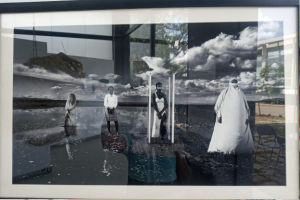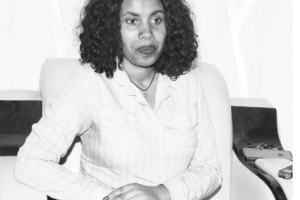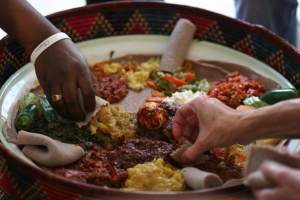
Various sources showed that sustainable economic development and a higher reduction in poverty rate are directly related to the equal inclusion of women in every sphere of a given nation. African women, who are still characterized by sociocultural patriarchy and systematic ignorance, are not given due consideration and equally treated in different sectors. Especially, the political landscape seems to stay monopolized by males though some improvements are progressively noticed in some African countries. Women toping up the ladder to politics have been facing certain challenges; which most of them emanating from the patriarchal perspective of the society.
The socialization regarding females is still guided by male supremacy. Thus, the efficacy of an individual woman is highly threatened by the cultural practices of the people. Among the basic problems that impacted women in their path of politics is stereotypes. The word can be understood to mean a generalized belief about a given person or group. It is a belief established by usually the masses towards an individual or a group. Though it is not a fact, the massive similar view yield undesired effect on the targeted person or group.
Once, ‘Talk Africa’ China’s Global Television Network (CGTN) program was interviewing the former Executive Director of UN Women, Phmuzile Mlambo Nguka, regarding African women empowerment. The Director was interrupted by the journalist while she explained points as follows. “We have the greatest number of women graduates in the world that the world has ever seen. But this number was not translated into practice Women were not entering senior management positions like commanding heights of the economy.” The journalist stuck her as “why”. The Director was so fast in responding. “Stereotypes, violence against women and push back and in some cases almost hidden biases towards women within private sectors.”
Few women candidates in the 2022 Kenyan general election were asked about the challenges they have been facing during their campaign. Anita Sonia from MP KAJIADO NORTH mentioned her basic challenge: “I have faced a lot of intimidation. I have stood my grounds. There was a time my car was vandalized on a broader daylight.” I understand this had happened because she is a woman; if she were a man, no one would dare to cause such humiliation. They did it in the open; which means attacking women politicians that way is a socially approved measure at least at that time.
She said, “It is tough. It is risky. People throw guns on my way. There are so many stereotypes. I am young; I am an African woman so they throw bad words at me. They didn’t give me a platform even to listen to what I was saying. They didn’t give me an opportunity to even present myself. So I decided to be independent.”
She mentioned that politics is tough because she was exposed to hear stereotypes and warnings. When such measures keep on challenging her, she finally gave up and left the space for others. Others are, I think, those incapable women for the sake of the allotted quota. Thus, they are there just for number not for effect.
The other woman with this line is Zipporah Kamau from MCA KABETE. Here is her experience. “People don’t believe that I can do it on my own as an African woman. People think that I am a prostitute or I have nothing to say.” This attitude is very frustrating for a woman who grew up in an African culture. She was not judged by her content of character rather she was encountering these challenges just by being a woman. This is, I believe, a violation of human rights. But human violation is raised if it was meant for a man. Thus, these skilled and passionate women did left the stage for men.
In Ethiopia, there are very irritating proverbs and maxims that humiliated women in various competitive areas. Though these sayings are sourced from a relatively higher patriarchal section of society, they are dominantly referred to when a strong woman is in a way to top up to some steps. Men drag these proverbs in a context that could perfectly throw away the woman from hope, work, education, and political fight. Here under, I have mentioned some common gender stereotyping proverbs that deliberately label women and hinder their path to success.
ሴት ለቤት፤ ወፍጮ ለዱቄት
Women are made for household chores; gristmill for flour
This proverb implies that a woman is only appropriate to perform household chores and she should remain at home carrying out domestic works. The reason is she is only effective in keeping her inside the house. She can’t do anything outside of the house. The truthfulness of this say is equated with the nature of gristmill. Its only function is to produce flour nothing else. Women’s potential is also restricted within the house. Thus, when a woman is detected outside the home, she is going to receive this stereotyped expression.
ሴት ማገዶ ቢቸግራት ምሰሶ ትነቅላለች
If a woman needs firewood, she will take off a pole
This saying is understood as a type of stereotype since the meaning aims at humiliating the woman. It infers the meaning that says the woman is unskillful and unable; so she can’t predict the future logically. She has a short memory so she only worries and thinks for the current situation and comfort. A pole is a basic pillar that should not be used for consumption purposes. If it is out there, everything that rests on it will collapse. A woman is that much “foolish” as the intended meaning shows. This is a very terrifying attitude of the society towards women. It is so discouraging that affects women to move forward in politics.
ሴት በማጀት ወንድ በችሎት
A woman’s place is in the kitchen; a man’s place is in the courtroom.
This expression is best inferred when the woman is in the path of politics. Such expressions are mostly thrown while the woman is out to explain her political program to followers. Since seeing a woman before the mass in a very open area is a weird thing in the socio-cultural norms of the society, such actions are going to be violated using this countenance. Thus, she is warned to go back home and take care of household chores; which is an effective section for her. Those critical areas like court decision-making spaces are only done by the male counterpart, not females.
ሴት ብታውቅ በወንድ ያልቅ
Though the woman knows; it is the man who decides the destiny
This stereotype has the gist of males’ superiority over the knowledge of the woman. Even though, the woman has a great deal of knowledge and is capable enough of doing something that is not enough in the eyes of the society. There should be a man to accomplish the task. Males with or without knowledge are not judged by their content. Their sex is the only thing for consideration. They are always on the front line in winning at everything which was initiated by any woman. That means the woman can’t scale up something and reach at its destiny without the supervision of males. This is one of the pessimistic gender-biased sayings that emphasize the importance of males; but lets a woman feel hopeless and worthless from the start; and even affects her from planning something.
ሴት ከወንድ እህል ከሆድ
The woman’s fate is man as the grain’s fate is stomach
This idea is generated to remind the woman that she is always under her man. She is not capable of standing on her own. She can’t be counted as a valuable person by herself. She should attach herself to a man to be fully recognized. The resemblance to the food shows that the destiny of the food is to be eaten and stored in the stomach. The women’s destiny is also to be under the control of the man. Thus, she can’t move on by her own. Whatever she tried to do, she is finally in the hands of the man to succeed in a given competition. This has a greater effect on the psychological makeup of the woman in various ways. It could affect her to run things with confidence and passion till its end. The mien is so disappointing that discourages women from inspiring for future careers.
ሴት ያመነ ጉም የዘገነ
The one who trusted a woman is equivalent to the one who took out some from the cloud.
This is a warning to not trust any woman. It is obvious that the cloud is not a physically touched thing. In parallel to the say; a woman is not the one to put trust in her. Thus, with the society that forwarded this proverb, it is too tough to speak out on the stage and get the trust of the followers in a political campaign.
These mentioned stereotypes are very powerful in affecting the psychological and moral aspirations of the woman. They could even left the woman with lasting trauma. This is a very serious issue which should recall responsible bodies to act upon it from grassroots level. Let me raise the idea of the former Executive Director of UN Women who mentioned some points as a solution for stereotypes of African women. She said that such abusive attempts should be enacted by law. The legislative body of each African country should formulate a new law and implement it seriously. Thus, gradually it could become the socially normed practice.
BY MEKDES TAYE (PHD)
THE ETHIOPIAN HERALD THURSDAY 1 AUGUST 2024





